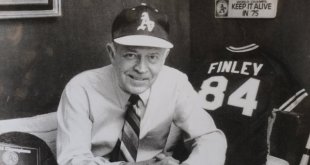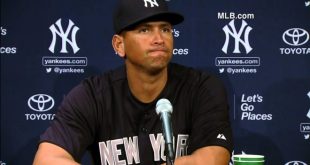Less than a month after the St. Louis Cardinals won the World Series in 2011 and 20 days prior to expiration, the then Commissioner Bug Selig unceremoniously announced that the MLB and the MLBPA had agreed to a five-year collective bargaining agreement that would extend its streak without a strike or lock-out to 21 years. In stark contrast, that same year both the NBA and NFL, and their respective player associations, while bickering and grandstanding for months on end, spent millions in attorney’s fees and lost hundreds of millions in revenue in the form of cancellation of preseason and regular season games (it was reported that the NBA lost more than $800M in revenues and the NFL lost at least $200M per week of preseason games missed) before reaching agreements.[i]
Unless you have locked yourself in a bunker for all of 2015, you are at least “generally aware” of the basics of the Deflategate saga between Tom Brady and the NFL. While the NFL and NLFPA have been butting heads and spending millions (twelve lawyers appeared at a recent Deflategate federal court hearing) in this litigation and others, the MLB and MLBPA have again been quietly working behind closed doors avoiding potential problems and this week announced a joint domestic violence, sexual assault and child abuse policy.
MLB and the MLBPA have announced an agreement on a Joint Domestic Violence, Sexual Assault and Child Abuse Policy. pic.twitter.com/C1eTGljC6r
— MLB Communications (@MLB_PR) August 21, 2015
The MLB’s domestic violence problem is no less serious than the NFL’s (see Wilfredo Cordero and Julio Lugo, among others). However, the manner in which the MLB and its players’ association have now tackled the discipline related to this issue compares night and day to the NFL. Unlike the NFL, which without bargaining with the NFLPA announced a domestic violence policy last August after the Ray Rice debacle, the MLB worked with its players’ association to come to a mutually agreeable policy. On the other hand, after the NFL unilaterally issued its policy, the NFLPA released this statement, hinting that more litigation may be around the corner:
We were informed today of the NFL’s decision to increase penalties on domestic violence offenders under the Personal Conduct Policy for all NFL employees. As we do in all disciplinary matters, if we believe that players’ due process rights are infringed upon during the course of discipline, we will assert and defend our members’ rights.
Does that mean that the MLB’s new policy is litigation-proof? Of course not. Generally speaking, however, any challenge to a policy that was mutually bargained for is much weaker than a challenge to a policy that was unilaterally announced by a league. In other words, the NFL continues to set itself up for more litigation while the MLB is actively working to avoid it.
Without further ado, here are the highlights (and some brief commentary) of the MLB’s new policy:
Investigations:
- The Commissioner’s Office will investigate all allegations of domestic violence, sexual assault, and child abuse in the Baseball community…. [T]he Players Association shall cooperate in the investigation, including making the player available for an interview.
- The Commissioner may place a player accused of domestic violence, sexual assault or child abuse on paid Administrative Leave for up to seven days while the allegations are investigated before making disciplinary decisions.
Similar to the MLB’s other disciplinary proceedings, this provision bestows the full power to investigate allegations of domestic violence, sexual assault and child abuse to the Commissioner’s office. Notably, the policy requires the Commissioner’s office to investigate all allegations. It will be interesting to see how this language is interpreted moving forward and whether only credible allegations are actually investigated. Obviously, if a police report is filed, the Commissioner would be required to investigate. But what about a TMZ report? A tweet by a family member? Do these, and other potentially less credible allegations put the onus on the Commissioner to investigate?
The ability of the Commissioner to place a player on administrative leave for up to seven days while investigating an accusation is similar to the NFL’s “Commissioner’s exempt list.” Roger Goodell placed Adrian Peterson and Greg Hardy on this (until recently little known) list during their investigations. The MLB version, however, is slightly more restrictive because there is a seven-day limit (NFL is unlimited) and it requires pay (NFL’s version leaves the question of whether or not to pay up to the player’s team). Onto what the Commissioner can do after he investigates:
Discipline:
- The Commissioner shall have authority to discipline a player who commits an act of domestic violence, sexual assault or child abuse for just cause. There is no minimum or maximum penalty prescribed under the policy but rather the Commissioner can issue the discipline he believes is appropriate in light of the severity of the conduct. The Commissioner’s authority to discipline is not dependent on whether the player is convicted or pleads guilty to a crime.
- A player may challenge his discipline before the parties’ Arbitration panel, which consists of a representative of each party and the parties’ agreed-upon Impartial Arbitrator. A challenge to discipline will be governed by the “just cause” standard. …
- Under the new policy, the parties have agreed that prior precedent and past practice of disciplining players for engaging in an act of domestic violence, sexual assault, or child abuse may not be relied upon by a player to support a challenge to the severity of his discipline, but that all other disciplinary past practice and precedent will remain.
Unlike the MLB’s penalty structure for PEDs, which specifically outlines the number of games a player will be suspended for each offense, this policy provides no guidelines or maximum penalty. The penalty is left entirely up to the Commissioner’s discretion. This obviously will provide some intrigue for the first time Commissioner Manfred is forced to discipline a player under the policy. Also intriguing is a player’s inability to use past precedent during his challenge to the severity of the discipline handed down. At least for the first challenge, this will leave the player without precedent to argue (unless a player decides to cite to recent decisions in another sport, which is a possibility).
It is also worth noting that (learning from the NFL’s failure to negotiate the use of neutral arbitrators into its CBA) the policy provides for an arbitration to appeal the Commissioner’s discipline decision, comprised of three arbitrators, one of which is an agreed upon impartial arbitrator.
The “just cause” standard – which is also the standard used in other disciplinary provisions of the CBA, including the Commissioner’s power to discipline for conduct detrimental to the game – is not specifically defined in the policy or the CBA. It generally means a reasonable and lawful grounds for action. In traditional labor law, a seven-part “just cause” analysis is used including (you may recognize these from Deflategate): whether the player had notice; whether the investigation was fair and objective; and, whether the discipline was reasonable and proportional.
The policy also sets up a program to help a player get treatment:
Treatment and Intervention:
- The parties have established a Joint Policy Board, comprised of three experts in the field of domestic violence, sexual assault and/or child abuse, and two representatives each from the Players Association and the Commissioner’s Office. …
- The player’s Treatment Plan may require him to submit to psychological evaluations, attend counseling sessions, comply with court orders (including child support orders), relocate from a home shared with his partner, limit his interactions with his partner, relinquish all weapons, and other reasonable directives designed to promote the safety of the player’s partner, children, or victims.
It is encouraging to see the policy address the underlying issues and to help the players get the treatment they need. From a legal perspective, some of the listed conditions of a potential treatment plan (relocate from home and relinquish all weapons) could possibly be challenged in court.
While the MLB is still engaged in its fair share of litigation, the bottom line is that the MLB and MLBPA continue to demonstrate a willingness to learn from the NFL’s missteps and stay ahead of the curve. This new policy is just the latest example of its forward thinking.
[i] This is a guest contribution by Dan Werly. Dan is an attorney at the law firm Foley & Lardner LLP with a focus on commercial litigation in sports industry, and is a member of Foley’s nationally ranked sports industry practice. In addition to private practice, Dan has previous experience working for a NBA agent and for the U.S. Drug Enforcement Administration. Dan received his J.D. from Georgetown University Law Center in 2009, and B.A. in sports management from Miami (Ohio) University in 2006. The Sports Esquires Putting Sports on Trial
The Sports Esquires Putting Sports on Trial




6 comments
Pingback: New England Patriots Links 8/25/15 - Tarell Brown: Patriots Held to Higher Standard | The Scoopp
Pingback: Sports Law Links | The Sports Esquires
Pingback: Sports Law Links - The Sports Esquires
Pingback: Predicting MLB’s Suspensions in the Recent Domestic Violence Cases of Jose Reyes, Yasiel Puig, and Aroldis Chapman
Pingback: Friday Mailbag: FSU Settlement, NFL Shooting Itself in the Foot, and Race Lotteries
Pingback: Does The MLB Take Domestic Violence Seriously? We Are About To Find Out.